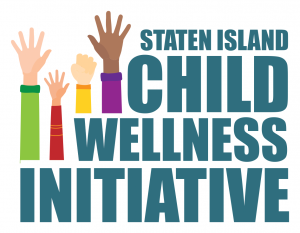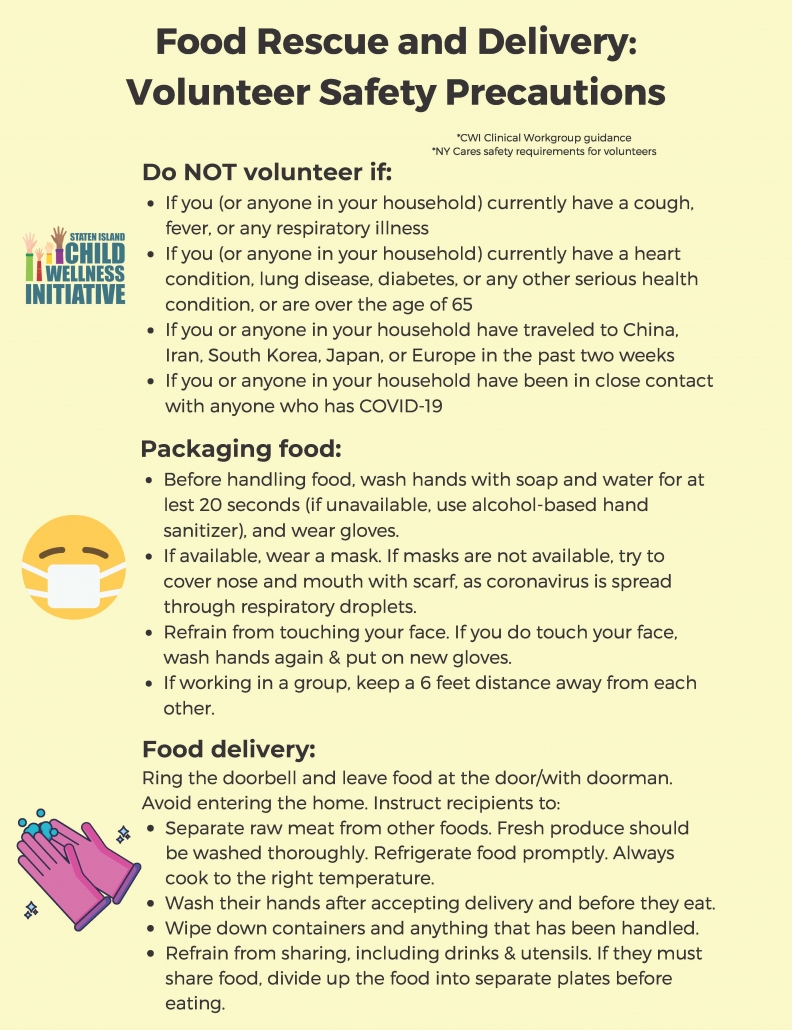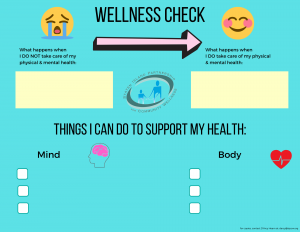CWI COVID Response
During these uncertain times, the Child Wellness Initiative is remaining actively engaged in our work to support SI children and families. As a public health backbone, we will provide credible information and timely updates regarding COVID-19. As a coalition, we will continue our commitment to reduce the burden of childhood chronic disease, recognizing the heightened need to reach families who need it most. We will prioritize COVID-19 warnings and updates as well as food access, medication access and important supports. Additionally, we will continue to host meetings virtually and find creative ways to support the coalition while engaging new voices. As always, we are open to your suggestions and feedback as we move forward together.
Food Access
-
Hunter College NYC Food Policy Center created Coronavirus NYC Food Resource Guides for each of NYC’s 59 community districts.Each resource guide includes information related to:
-food access
-meals for students and seniors
-delivery services for people with disabilities
-resources for immigrants
- For an updated list of open food pantries, visit the SI Hunger Task Force
- Free Meals: The NYC Department of Education is committed to making 3 free meals available daily for any New Yorker. Any New Yorker who wants one can get three free meals a day at more than 400 Meal Hubs across the city. Meals can be picked up at all Meal Hubs 7:30 am to 1:30 pm, Monday through Friday. Meals Hubs will operate for children and families from 7:30 am to 11:30 am, and for adults from 11:30 am to 1:30 pm
- No one will be turned away at any time
- All adults and children can pick up three meals at one time
- Vegetarian and halal options available at all sites
- No dining space is available, so meals must be eaten off premises
- Parents and guardians may pick up meals for their children
- No registration or ID required
- Dates, locations, and menus are subject to change.
Food Rescue & Delivery
Risk of Getting COVID-19
People with asthma may be at higher risk of getting very sick from COVID-19. COVID-19 can affect your respiratory tract (nose, throat, lungs), cause an asthma attack, and possibly lead to pneumonia and acute respiratory disease.
Follow your Asthma Action Plan
- Take your asthma medication exactly as prescribed. Talk to your healthcare provider, insurer, and pharmacist about creating an emergency supply of prescription medications, such as asthma inhalers. Make sure that you have 30 days of non-prescription medications and supplies on hand too in case you need to stay home for a long time.
- Know how to use your inhaler.
- Avoid your asthma triggers.
- Clean and disinfect frequently touched surfaces like tables, doorknobs, light switches, countertops, handles, desks, phones, keyboards, toilets, faucets, and sinks daily to protect yourself against COVID-19. Avoid disinfectants that can cause an asthma attack.
- As more cases of COVID-19 are discovered and our communities take action to combat the spread of disease, it is natural for some people to feel concerned or stressed. Strong emotions can trigger an asthma attack. Take steps to help yourself cope with stress and anxiety.
CWI Social Media
- Please check the CWI Facebook page for the most recent updates
- Contact sarah@sipcw.org for questions or suggestions



